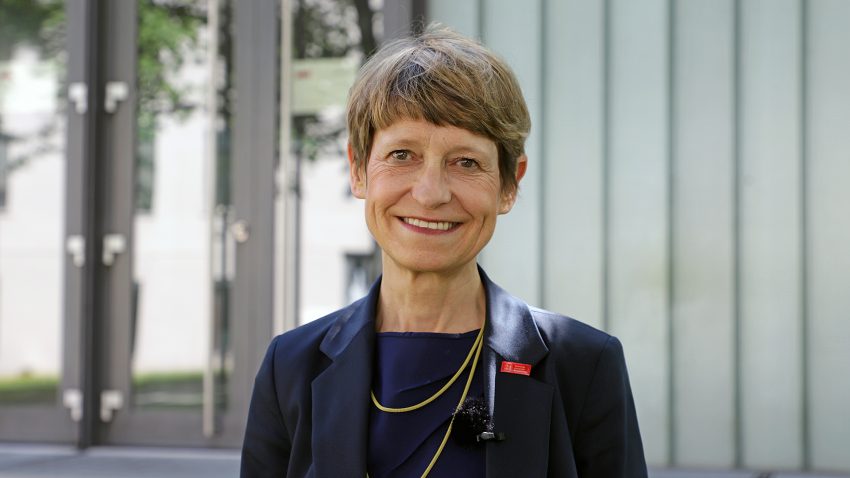Spotlight: Internationalisation has many facets Topics and highlights of the President’s schedule
TU Braunschweig is aiming to become more international. This has been the case long before I became its president. But what exactly is internationalisation? The process has an enormous number of facets. Why is it good to become (even) more international? When will we be sufficiently international? This is what my current Spotlight is all about.
Today modern universities not only have to withstand competition on the international market, think globally and align their activities globally. They also have to do this against a goal of maintaining their status as excellent and contemporary teaching and research institutes.
I want to support TU Braunschweig on its path to becoming a globally aligned and focussed institution. The vision means we are not only educating and training for the regional but also for the global employment market. It means our research and the partners with whom we conduct research and academic exchange are present in global contexts. The aspects within this endeavour range from the search for interested and suitable international talent, establishing a welcoming culture and providing support for international guest academics and students, through to founding an active international alumni network. It’s also about the visibility of and support given to international experiences in studies and career here on site and on a global level. Our target groups are all members of TU Braunschweig: Students as well as young academics, (administrative) employees as well as managers. It’s all about giving courses and research groups an international focus, it’s about our foreign language courses and about ensuring our documents and Internationalisation@home are bi-lingual. Last but not least, it’s about establishing a university culture valid for all status groups that promotes and values international encounters abroad and on campus.
In 2014, TU Braunschweig carried out an audit of the German Rectors’ Conference (HRK), which highlights the internationalisation potential of our university and identifies concrete next steps. The re-audit five years later was also deemed constructive and inspirational by all involved. Much has already been achieved. The foundation of the International House, the establishment of a cross-faculty internationalisation committee and the development of a roadmap are all good examples. Internationalisation projects are already underway in all faculties and administration is also working to adapt its services to an international audience. We still have a long road ahead, particularly with regard to the internationalisation of the courses and the international visibility of our university. The feedback of the experts involved in the Excellence Strategy and from the Lower Saxony Scientific Commission also highlighted aspects we need to work on in this area.
In motion
TU Braunschweig is changing, but so too are the requirements government policy, society and business place on research-oriented universities. So it’s also important for us to continuously adapt our internationalisation strategy and the activities and measures flowing from it to current and future requirements. We are now focusing all our energy on this issue within the structures we have already created and beyond them. In line with this, the Internationalisation Council already met for a closed meeting on 14 and 15 October to discuss and define priorities, concrete requirements and next steps. A major topic was establishing a genuine and consistent bi-lingual university in research, teaching, administration and transfer. It is evident that we have some catching up to do here, for example in the provision of bi-lingual documents and in reporting. But that alone isn’t enough. We want to actively approach our international students, employees and our partners abroad. We want to invite them, make them welcome, provide them with the best possible support and maintain long-term contact with them. We also want to establish networks with universities and other stakeholders abroad. This includes regions where our presence is currently not so prominent, such as Africa and Latin America. In order to facilitate an optimal implementation of these goals, we will become the first university in Germany to be advised by the HRK in a re-re-audit. With an international committee of experts, it will be possible for us to address and implement exciting topics within the internationalisation process. I’m already looking forward to it, as well as to the many other steps that we will take together on the road to internationalisation.

